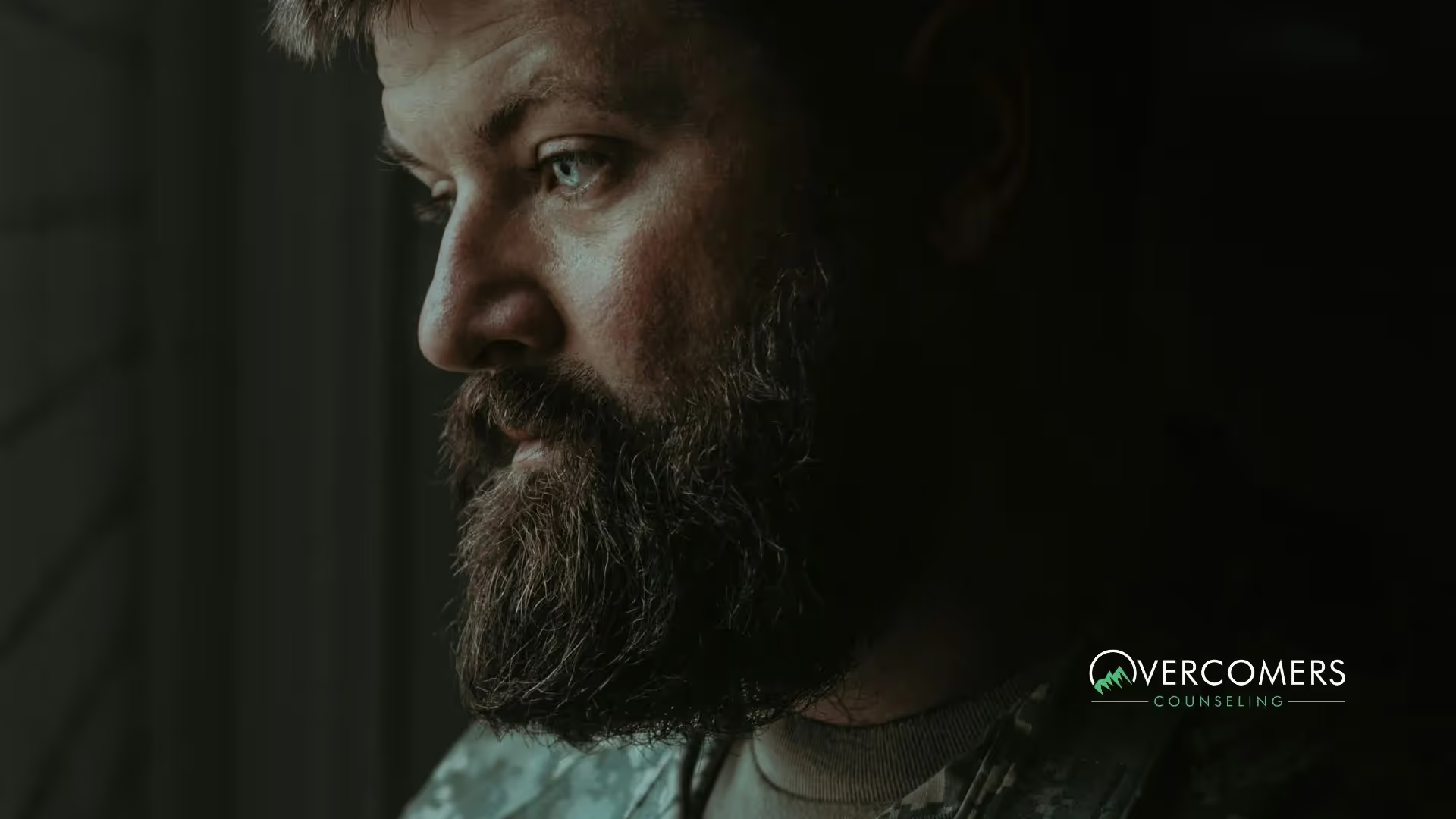In the gripping narrative of a soldier's life, there's often an unseen battle being fought long after the war has ended - the battle against Post-Traumatic...

In the gripping narrative of a soldier's life, there's often an unseen battle being fought long after the war has ended - the battle against Post-Traumatic Stress Disorder (PTSD).
This mental health condition, prevalent among veterans, can cast a long and debilitating shadow over their lives.
This enlightening article explores the transformative power of Cognitive Behavioral Therapy (CBT) as a beacon of hope.
We'll look at how CBT techniques can equip veterans with effective coping strategies to navigate the stormy seas of PTSD, restoring calm and control in their lives.
Cognitive Behavioral Therapy (CBT) plays a significant role in treating PTSD. It is a type of psychotherapeutic treatment that aims to change patterns of thinking or behavior that are behind individuals' difficulties, thereby changing the way they feel.
PTSD, a mental health condition triggered by experiencing or witnessing a terrifying event, often leads to intense, disturbing thoughts and feelings related to the traumatic experience.
These may last long after the event has ended. It can lead to severe emotional turmoil and can significantly disrupt a person's life if left untreated.
The primary goal of CBT for PTSD is to understand and modify the negative thought patterns that lead to PTSD symptoms.
It helps individuals learn to identify and challenge these distressing thoughts.
The process of CBT involves several steps:
CBT has been found to be significantly beneficial in treating veterans with Post-Traumatic Stress Disorder.
Here are some key findings from various research studies:
Effectiveness in Reducing PTSD Symptoms: Analysis published in Clinical Psychology Review found that soldiers and veterans diagnosed with PTSD benefited from psychotherapy, including trauma-focused cognitive behavioral therapy.
Improvements in Sleep Quality: A study published in Sleep Health showed that veterans with comorbid insomnia and PTSD experienced sleep improvements with Cognitive Behavioral Therapy for Insomnia (CBT-I), even when PTSD is viewed as a potential barrier.
Reduction in Anger Reactions: Research published by the American Psychological Association indicated that CBT intervention was shown to reduce anger reactions and improve anger control in veterans with PTSD.
Efficacy in Treating Insomnia and Nightmares: A study in the Journal of Clinical Psychology found that CBT-I combined with adjunctive Imagery Rehearsal Therapy (IRT) may hold promise for reducing both insomnia and PTSD symptoms.
Effectiveness in Integrated Therapy: An integrated cognitive-behavioral therapy (ICBT) was found effective in reducing PTSD symptoms and substance use.
Potential in Group Therapy: Research published in the Journal of Clinical Psychology indicated potential benefits of group cognitive-behavioral treatment (CBT) for veterans with PTSD.

Cognitive Behavioral Therapy provides a variety of coping strategies and techniques that can be incredibly beneficial for veterans dealing with PTSD. Here are some of these strategies:
Veterans can integrate these techniques into their daily lives in the following ways:
Cognitive Behavioral Therapy (CBT) offers a promising approach for veterans grappling with the challenges of Post-Traumatic Stress Disorder (PTSD).
CBT helps identify and challenge negative thought patterns while introducing healthier alternatives.
It's been shown to effectively reduce PTSD symptoms, improve sleep quality, and enhance overall well-being among veterans.
Various coping strategies like cognitive restructuring, exposure therapy, and stress inoculation training provide practical tools that can be integrated into daily life.
If you are a veteran struggling with PTSD, remember that help is available. Don't hesitate to reach out to a healthcare professional who can guide you through the process of recovery.
People often seek Cognitive Behavioral (CBT) when dealing with anxiety, stress, trauma, relationship concerns, or life transitions. Cognitive Behavioral (CBT) helps clients recognize patterns, manage emotions, and build tools that support long‑term growth and wellbeing.
Yes! We offer Cognitive Behavioral (CBT) in Colorado through in‑person sessions and secure online therapy. Whether someone is located in a major city or a quieter rural area, they can connect with a therapist trained in Cognitive Behavioral (CBT) across the state.
Many insurance plans do cover Cognitive Behavioral (CBT), and we can help verify benefits before beginning therapy. Private‑pay options are also available to ensure Cognitive Behavioral (CBT) is accessible to those who need it.
Absolutely. Cognitive Behavioral (CBT) for teens supports young people facing emotional, social, and behavioral challenges. Therapists use the principles of Cognitive Behavioral (CBT) to help teens build resilience, understand their emotions, and develop healthier ways of coping.
Cognitive Behavioral (CBT) blends established therapeutic methods with a tailored approach designed to support emotional healing and personal growth. In Cognitive Behavioral (CBT), the therapist helps clients explore their challenges while using techniques specific to this model, creating a space where insight, resilience, and clarity can genuinely develop.